如何在 Excel 中自动合并上方/左侧的空白单元格?
合并是 Excel 中最复杂的操作之一。如果我们错误地合并单元格,数据可能会丢失并且无法恢复。我们可以使用本文中提到的方法更谨慎地进行操作,该方法只考虑空单元格。本教程将帮助您了解如何在 Excel 中自动合并上方或左侧的空白单元格。将多个单元格组合在一起称为**合并**。
自动合并上方空白单元格
在这里,我们将插入一个 VBA 模块,然后运行它来完成我们的任务。让我们看看一个简单的过程来了解如何使用 VBA 代码在 Excel 中自动合并上方空白单元格。
步骤 1
考虑一个 Excel 工作表,其中包含类似于下图所示的数据。
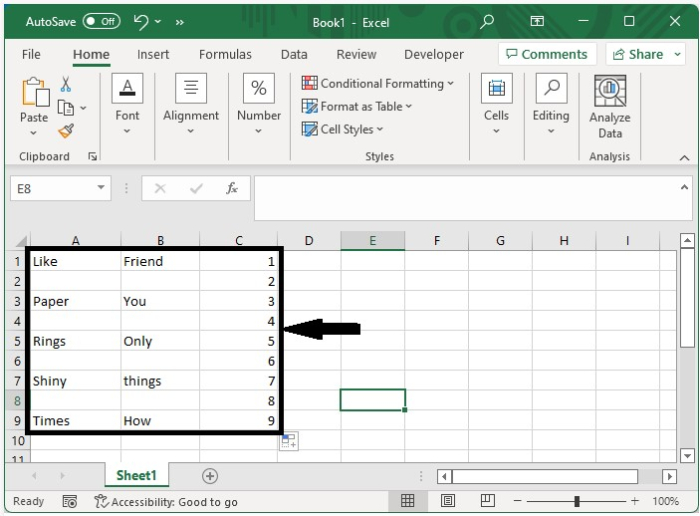
要打开 VBA 应用程序,请右键单击工作表名称并选择“查看代码”,然后单击“插入”并选择“模块”,然后在文本框中键入程序 1,如下图所示。
示例 1
Sub MergeCells() 'Update By Nirmal Dim xRg As Range Dim xCell As Range Dim xAddress As String On Error Resume Next xAddress = Application.ActiveWindow.RangeSelection.Address Set xRg = Application.InputBox("Select a range:", "Choose the Range", xAddress, , , , , 8) If xRg Is Nothing Then Exit Sub For Each xCell In xRg If xCell.Value = "" Then Range(xCell, xCell.Offset(-1, 0)).Merge End If Next End Sub
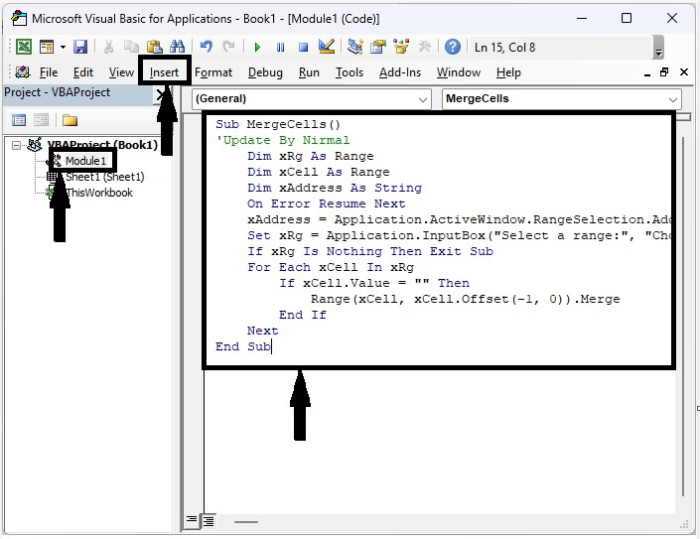
步骤 2
现在单击 F5 运行 VBA 代码,然后在弹出窗口中选择要合并的区域,然后单击“确定”。
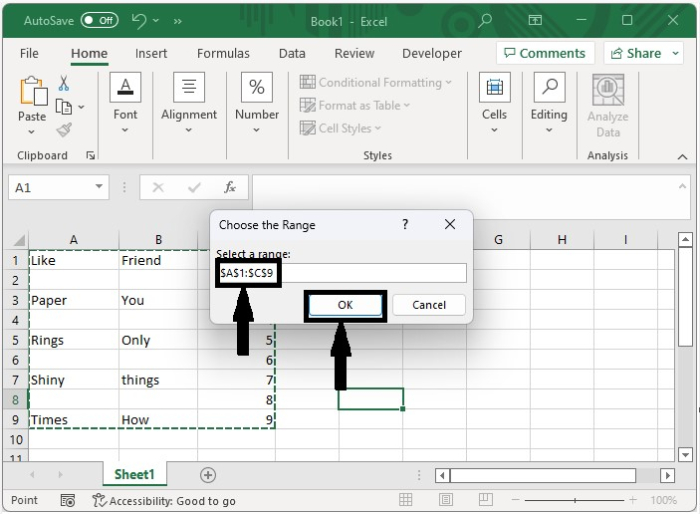
我们的最终输出将如下面的图片所示。
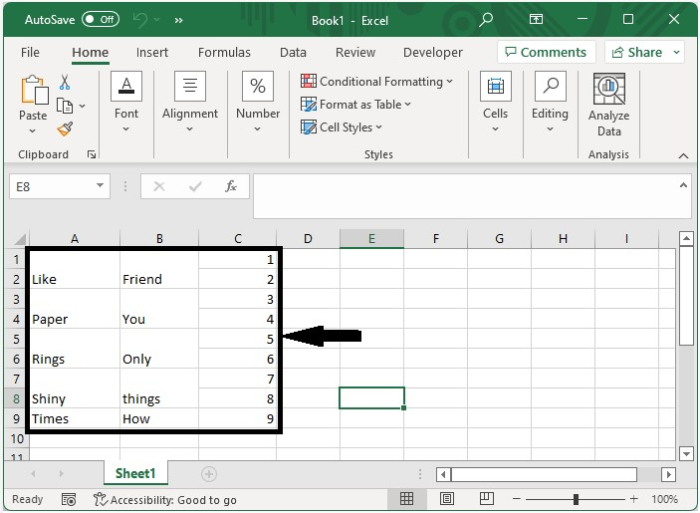
如果您只想允许合并上方的一个单元格,请在 VBA 应用程序中使用程序 2。
示例 2
Sub mergeblankswithabove() 'Updated By Nirmal Dim I As Long Dim xRow As Long Dim xRg As Range Dim xCell As Range Dim xAddress As String On Error Resume Next xAddress = Application.ActiveWindow.RangeSelection.Address Set xRg = Application.InputBox("Select a range (single column):", "Choose the Range", xAddress, , , , , 8) If xRg Is Nothing Then Exit Sub If xRg.Columns.Count > 1 Then MsgBox "Only work for single column", , "Range selected" Exit Sub End If xRow = xRg.Rows.Count Set xRg = xRg(xRow) For I = xRow To 1 Step -1 Set xCell = xRg.Offset(I - xRow, 0) Debug.Print xCell.Address If xCell.Value = "" Then Range(xCell, xCell.Offset(-1, 0)).Merge Next End Sub
自动合并左侧空白单元格
在这里,我们将插入 VBA 模块,然后运行它来完成我们的任务。让我们看看一个简单的过程来了解如何使用 VBA 代码自动合并 Excel 中的空白单元格(左侧)。
步骤 1
考虑一个 Excel 工作表,其中包含类似于下图所示的数据。
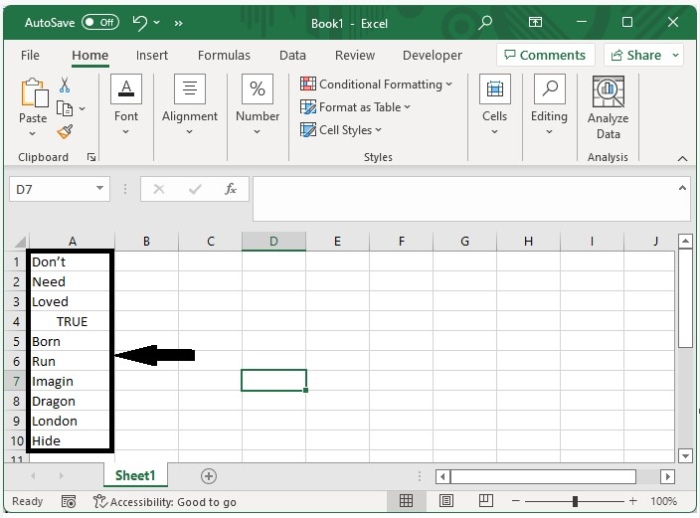
要打开 VBA 应用程序,请右键单击工作表名称并选择“查看代码”,然后单击“插入”并选择“模块”,然后在文本框中键入程序 3,如下图所示。
示例 3
Sub mergeblankswithleft() 'Update by Nirmal Dim xRg As Range Dim xCell As Range Dim xAddress As String On Error Resume Next xAddress = Application.ActiveWindow.RangeSelection.Address Set xRg = Application.InputBox("Select a range:", "Range to merge", xAddress, , , , , 8) If xRg Is Nothing Then Exit Sub For Each xCell In xRg If xCell.Value = "" Then Range(xCell, xCell.Offset(0, -1)).Merge Next End Sub
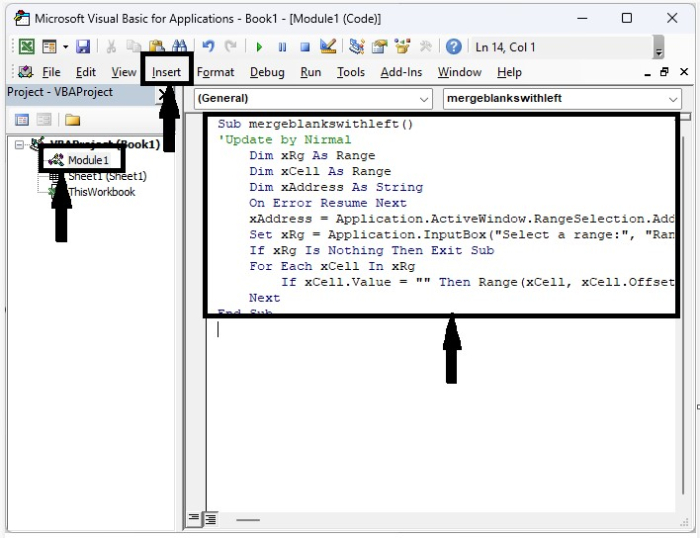
步骤 2
现在单击 F5 运行 VBA 代码,然后在弹出窗口中选择要合并的区域,然后单击“确定”。我们的最终输出将如下面的图片所示。
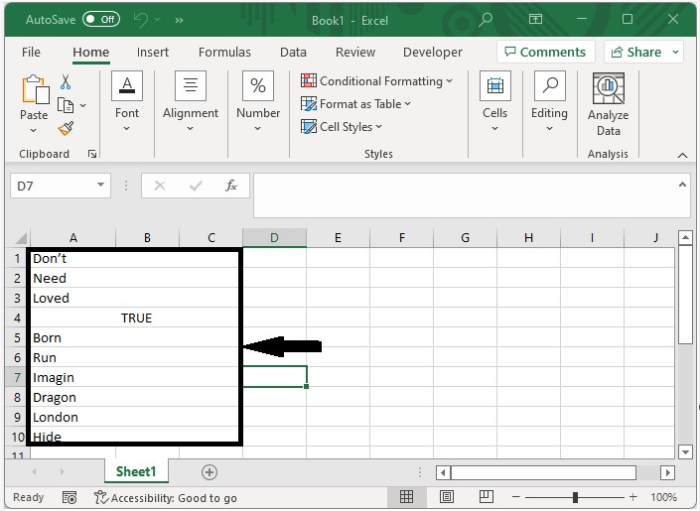
结论
在本教程中,我们使用了一个简单的示例来演示如何在 Excel 中自动合并空白单元格。

广告

 数据结构
数据结构 网络
网络 关系数据库管理系统 (RDBMS)
关系数据库管理系统 (RDBMS) 操作系统
操作系统 Java
Java iOS
iOS HTML
HTML CSS
CSS Android
Android Python
Python C 编程
C 编程 C++
C++ C#
C# MongoDB
MongoDB MySQL
MySQL Javascript
Javascript PHP
PHP